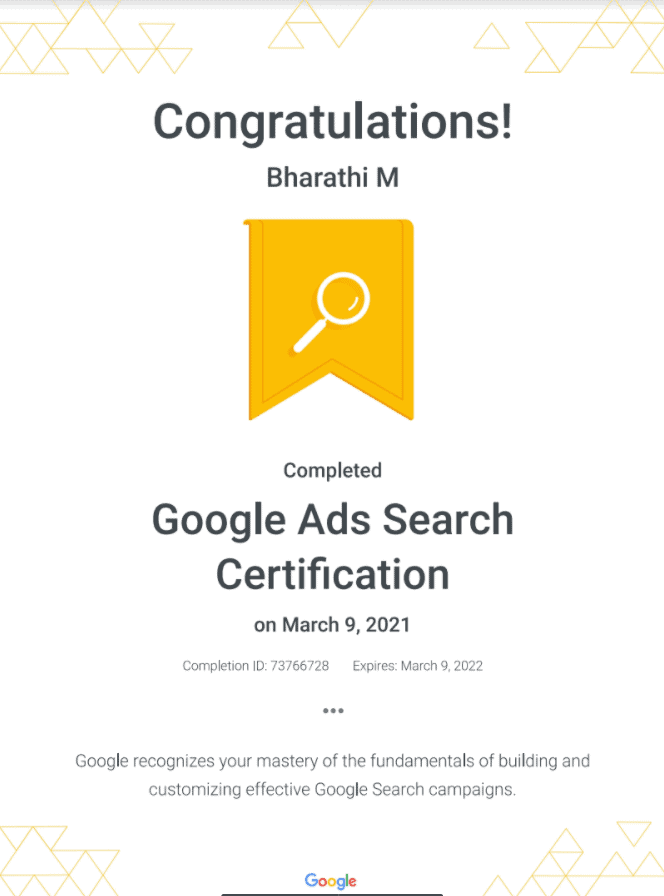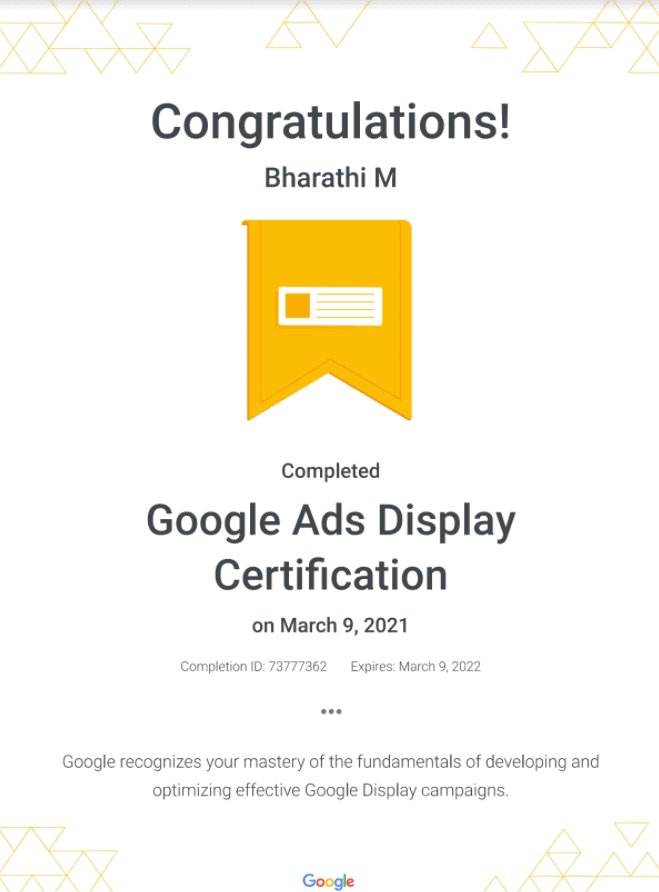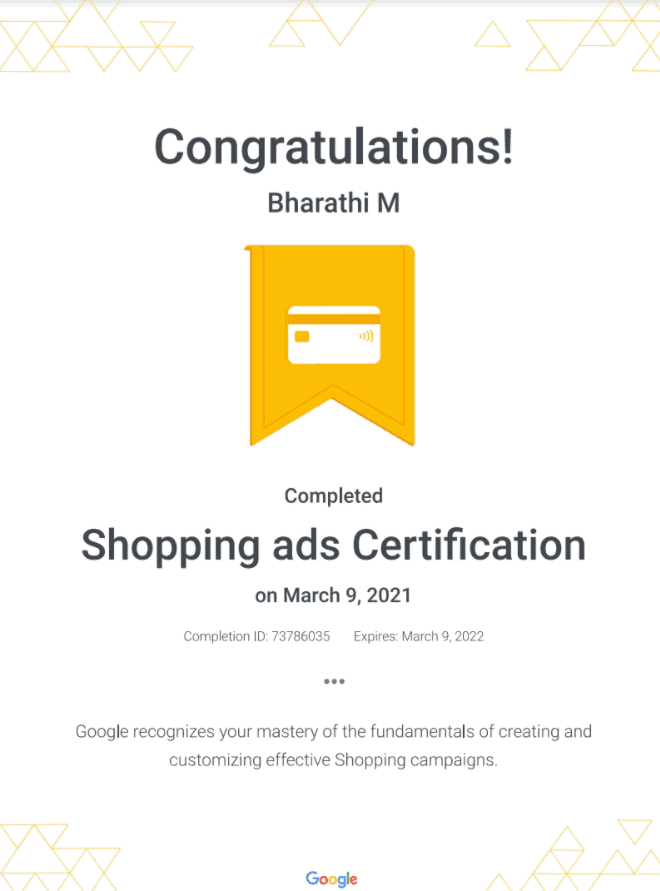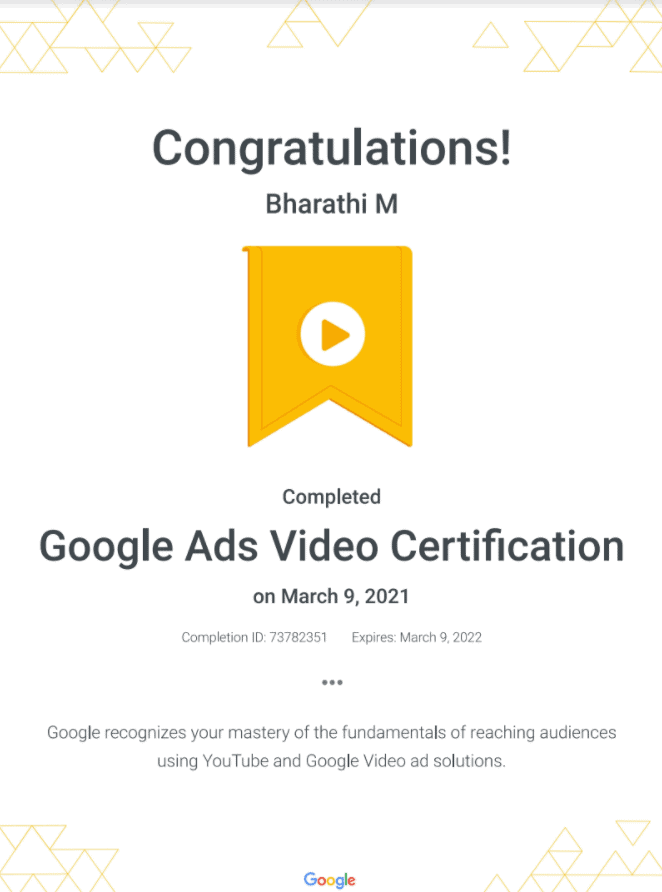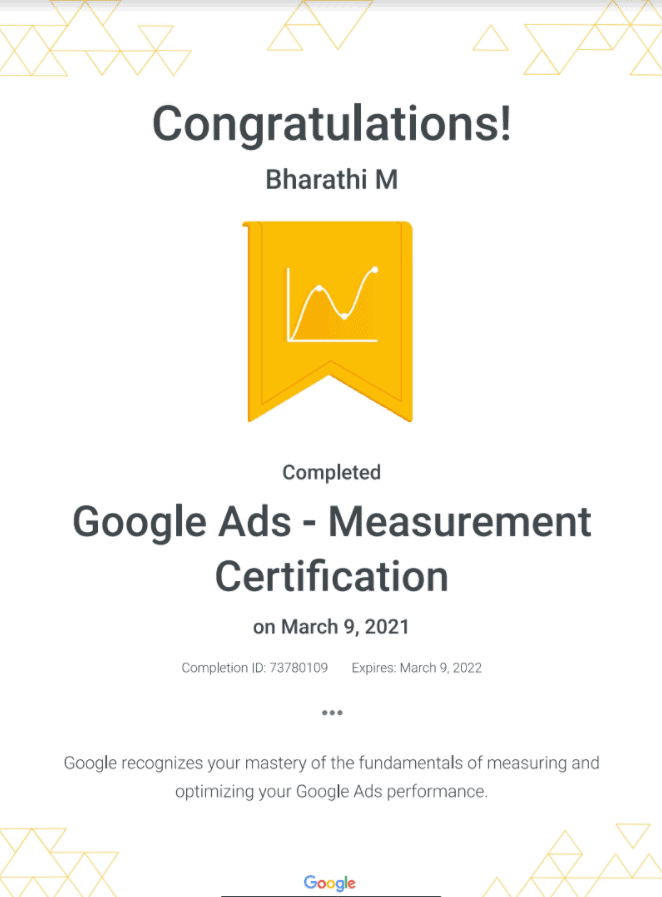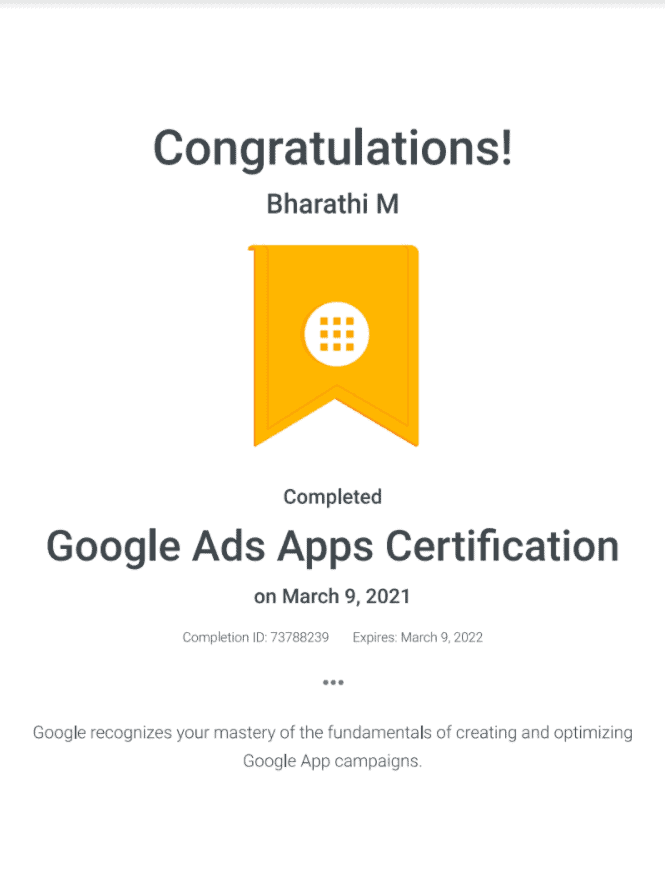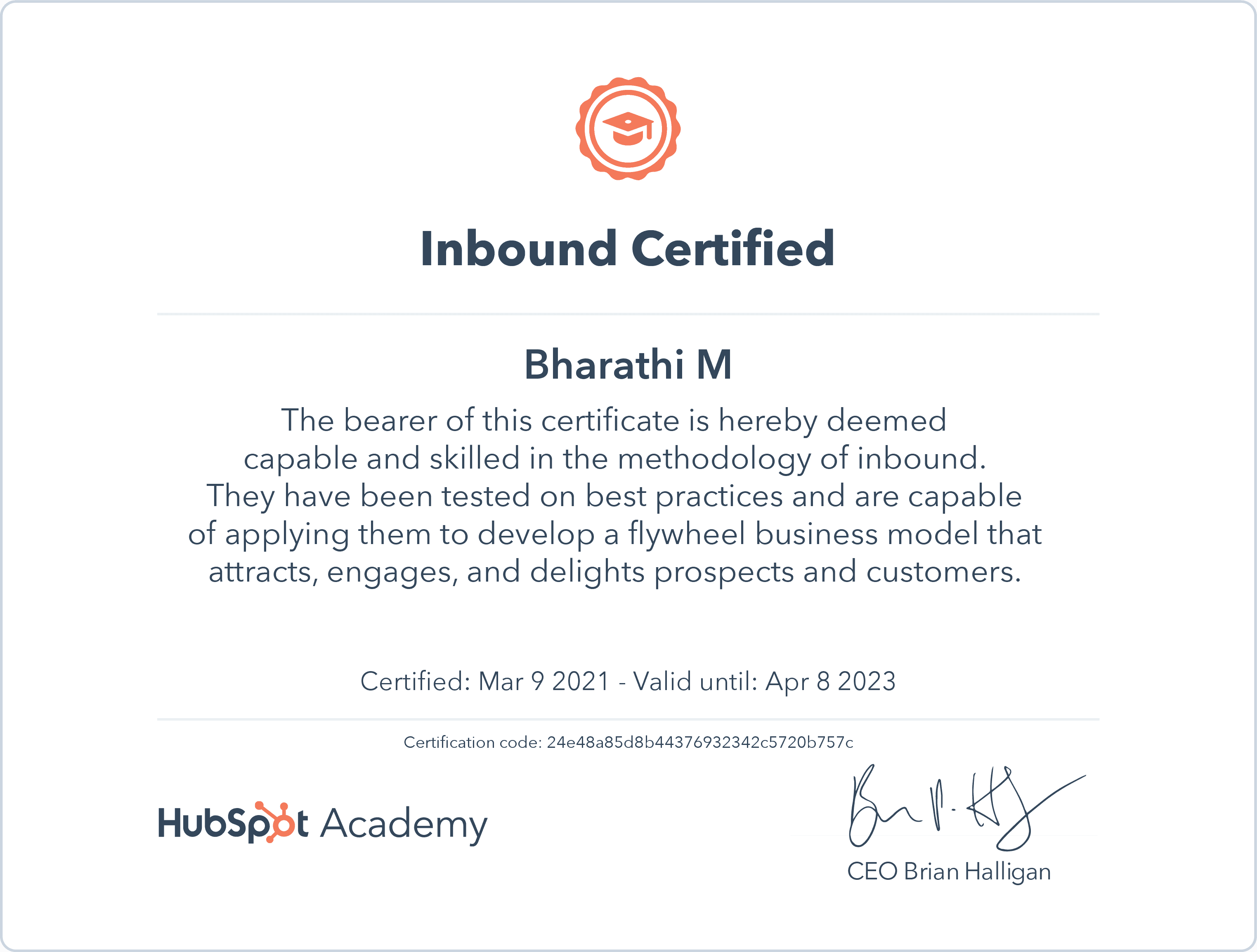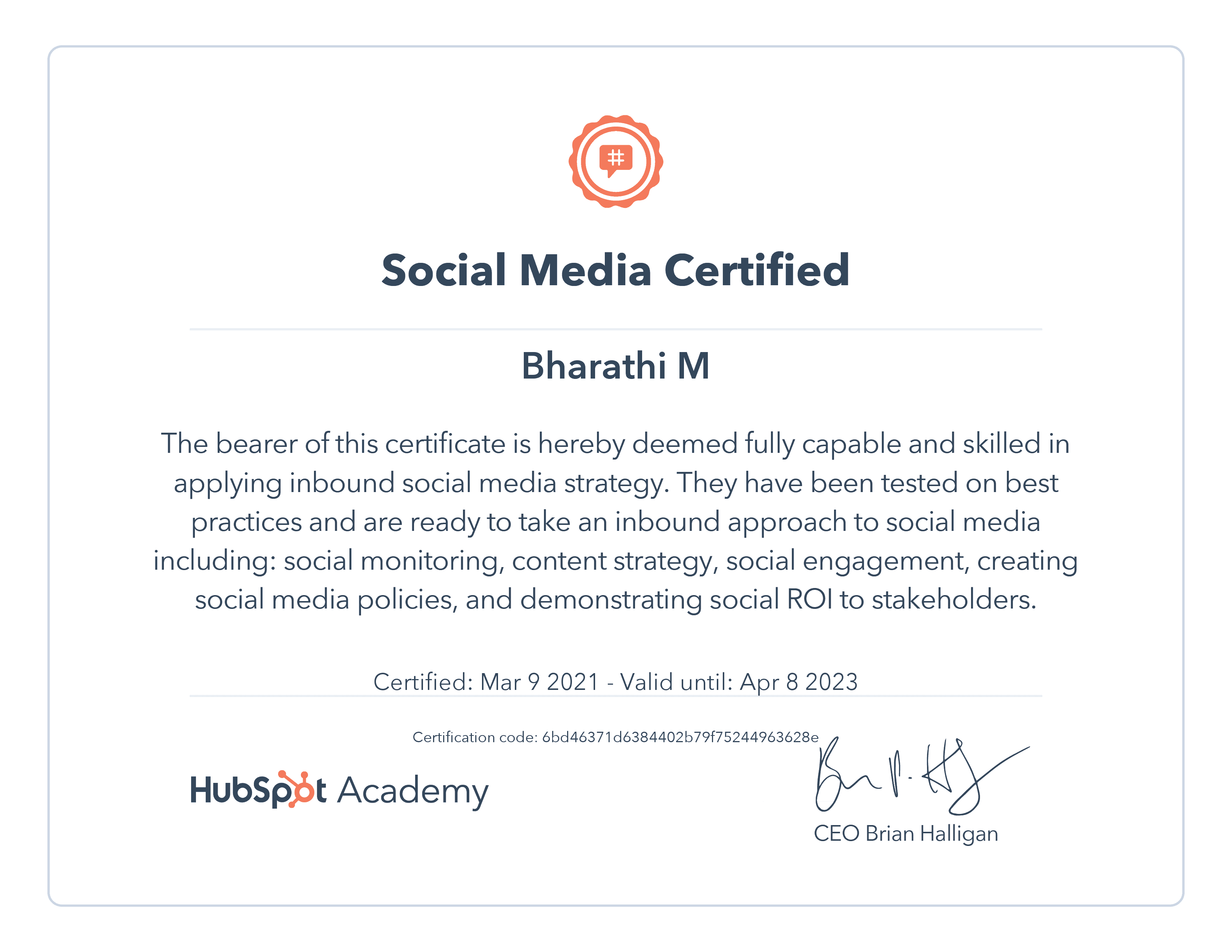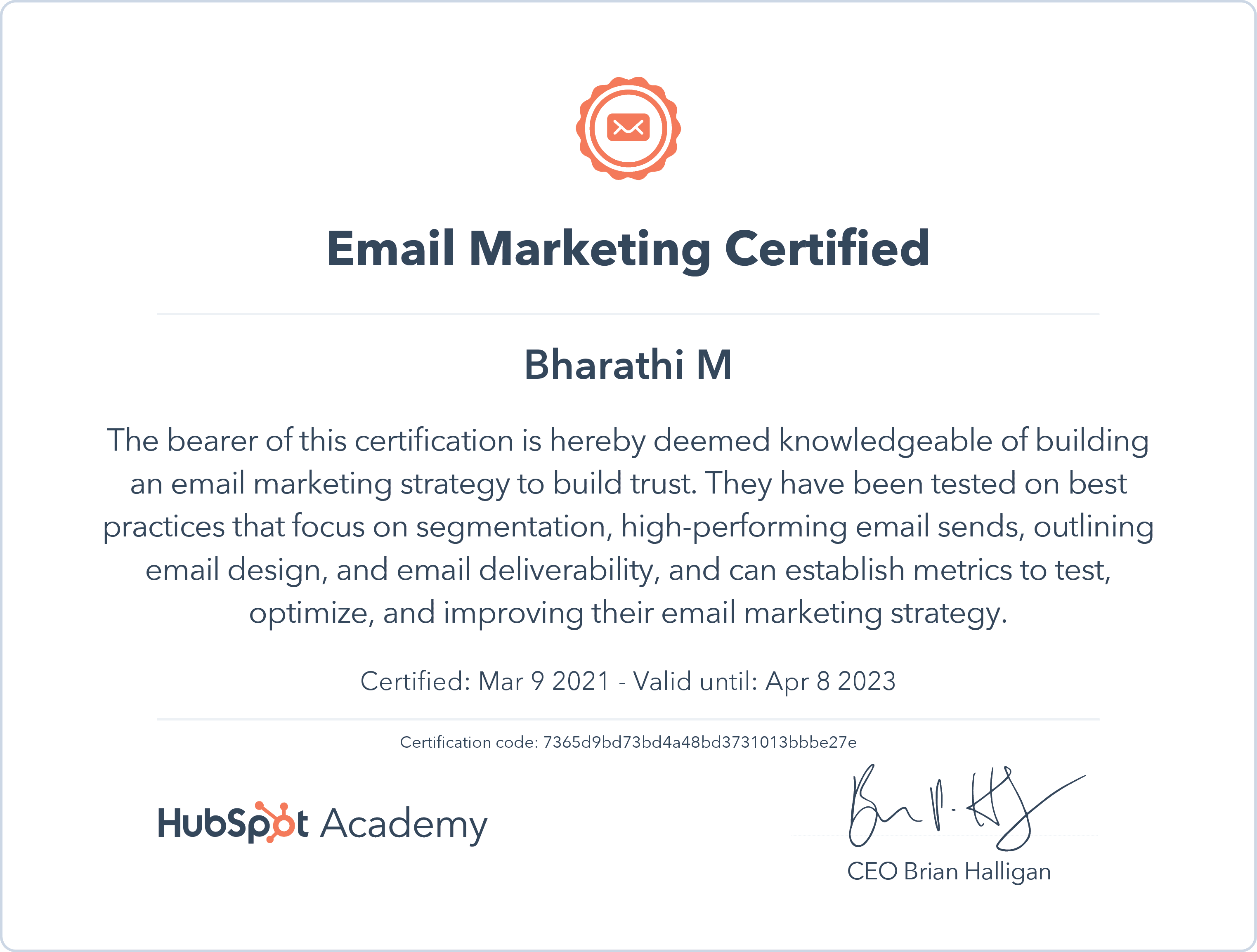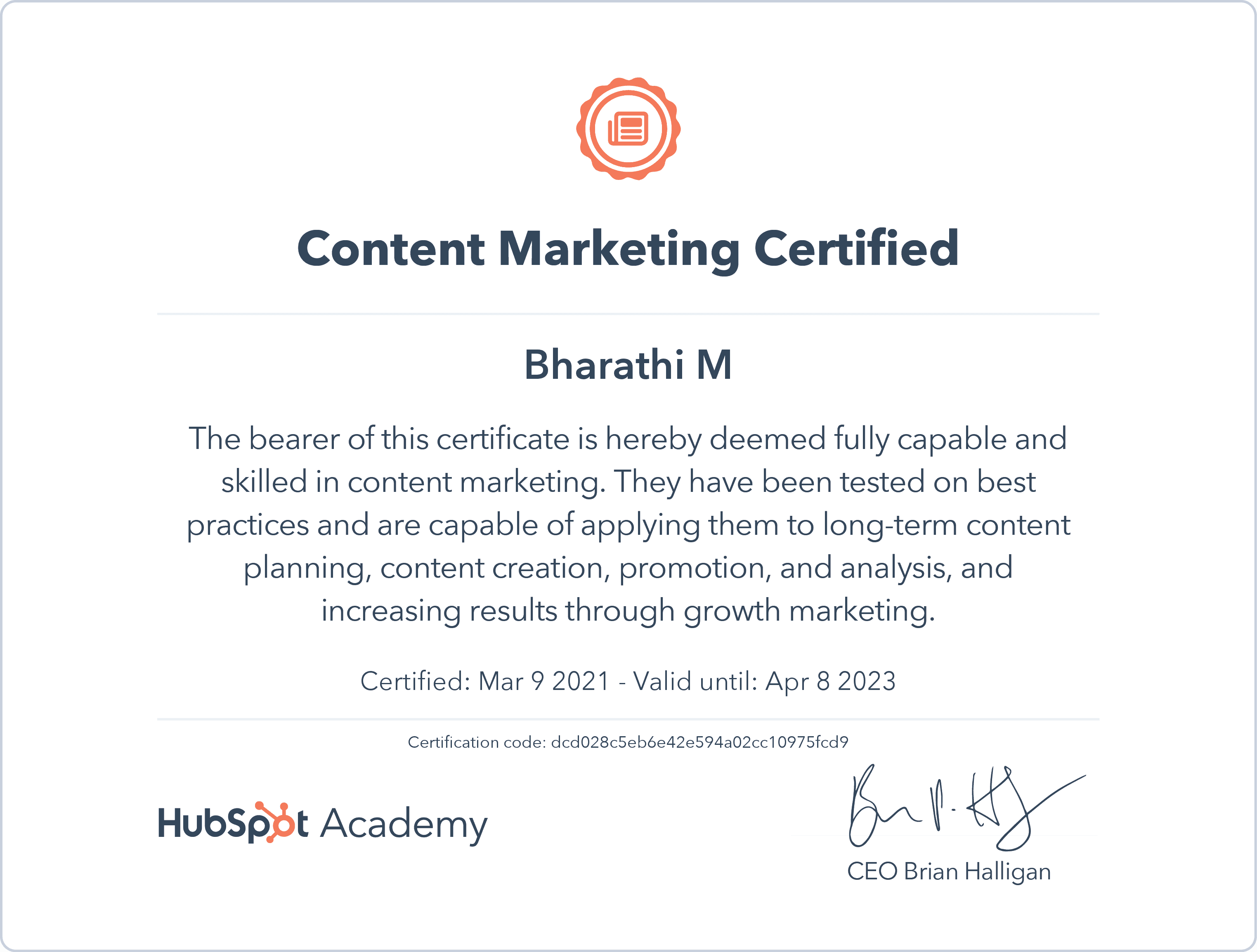In the fast-paced world of online business, mastering digital marketing has become essential for anyone looking to thrive in today’s economy. Bangalore, often hailed as India’s Silicon Valley, is a hub for tech innovation and entrepreneurial spirit, making it an ideal location to pursue digital marketing education. If you’re searching for the best digital marketing courses in Bangalore, this in-depth guide will help you navigate your options. We’ll explore the top 10 programs available in 2026, based on factors like curriculum relevance, faculty expertise, placement success, student feedback, and overall value. Whether you’re a fresh graduate, a working professional, or an entrepreneur, these courses can equip you with skills in SEO, social media marketing, PPC, content strategy, and AI-driven tools to boost your career.
This article is designed to provide completely original insights, drawing from extensive research on current trends and institute offerings. With digital marketing jobs projected to grow by over 30% in India by 2027, investing in one of these digital marketing institutes in Bangalore could be your gateway to high-paying roles like digital strategist, SEO specialist, or social media manager. Let’s dive into the details, starting with the fundamentals.
Digital marketing encompasses all online strategies used to promote products, services, or brands through digital channels. Unlike traditional marketing, which relies on print ads, billboards, or TV commercials, digital marketing leverages the internet’s vast reach to target audiences more precisely and measure results in real-time.
SEO is the art and science of optimizing websites to rank higher on search engines like Google. It involves keyword research, on-page optimization (such as meta tags and content structure), off-page efforts (like backlink building), and technical aspects (site speed and mobile-friendliness). For instance, a well-optimized e-commerce site can see organic traffic increase by 200% within months, driving sales without paid ads.
PPC allows businesses to bid on keywords to display ads on platforms like Google Ads or Bing. You only pay when someone clicks your ad, making it cost-effective. Advanced PPC strategies include remarketing, where ads follow users across the web, and A/B testing to refine ad copy for better conversion rates.
Platforms like Facebook, Instagram, LinkedIn, and Twitter (now X) are goldmines for engagement. SMM involves creating content calendars, running targeted ads, influencer collaborations, and analytics to track metrics like engagement rate and ROI. In Bangalore’s startup scene, SMM has helped brands like Swiggy and Flipkart build massive followings.
This focuses on creating valuable content—blogs, videos, infographics—to attract and retain audiences. High-quality content not only boosts SEO but also establishes thought leadership. Tools like Canva for visuals or Ahrefs for research are staples in modern content strategies.
Building email lists and sending personalized campaigns can yield up to 4,200% ROI. Automation tools like Mailchimp or HubSpot allow for drip campaigns, segmentation, and A/B testing to nurture leads into customers.
Tools like Google Analytics provide insights into user behavior, helping marketers refine strategies. In 2026, AI integration in analytics predicts trends, personalizes experiences, and automates reporting.
With AI tools like ChatGPT for content generation and voice assistants like Alexa, digital marketing is evolving. Voice search optimization emphasizes natural language queries, while AI helps in predictive marketing.
Digital marketing’s appeal lies in its measurability—every click, like, and share can be tracked—unlike vague traditional metrics. Globally, businesses spend over $500 billion annually on digital ads, with India contributing significantly due to its 800 million+ internet users. Learning these skills opens doors to freelance gigs, agency roles, or in-house positions, with average salaries in Bangalore ranging from ₹4-8 LPA for entry-level to ₹15-25 LPA for experts.
Bangalore isn’t just India’s IT capital; it’s a breeding ground for digital innovation. Home to giants like Infosys, Wipro, and startups in Koramangala and Indiranagar, the city offers unparalleled networking opportunities. Here’s why it’s the perfect spot for digital marketing training in Bangalore:
With over 10,000 startups and tech firms, demand for digital marketers is skyrocketing. Roles in e-commerce (Amazon, Myntra), fintech (Paytm), and edtech (Byju’s) abound. Post-course placements often lead to jobs with salaries 20-30% higher than national averages.
Institutes here collaborate with professionals from Google, Meta, and local agencies, providing real-world insights. Events like Bangalore Digital Summit expose students to global trends.
Courses range from ₹20,000-₹1,50,000, with flexible modes (online, offline, hybrid). Neighborhoods like BTM Layout, Jayanagar, and Marathahalli host top institutes, making commuting easy.
Bangalore’s cosmopolitan vibe fosters creativity, essential for marketing. The city’s 70% digital penetration means hands-on projects reflect real scenarios.
In 2026, with India’s digital economy projected at $1 trillion, Bangalore’s ecosystem ensures graduates are job-ready. Compared to Delhi or Mumbai, lower living costs (₹25,000/month average) make it student-friendly.
Investing in a digital marketing course in Bangalore with placement yields long-term rewards:
Skill Versatility: Gain expertise across channels, making you adaptable in a dynamic field.
High Demand and Salaries: Entry-level roles start at ₹3-5 LPA, scaling to ₹10+ LPA with experience.
Entrepreneurial Edge: Learn to market your own business cost-effectively, ideal for startups.
Certifications: Earn Google, Meta, and HubSpot creds, boosting resumes.
Practical Experience: Most courses include live projects, internships, and tools access.
Networking: Connect with peers and mentors for collaborations.
Remote Work Potential: Digital skills enable freelancing globally via Upwork or Fiverr.
Future-Proofing: AI integration prepares you for trends like metaverse marketing.
Students often report 50-100% career growth post-course, with many transitioning from non-tech fields.
With hundreds of options, selecting the right best digital marketing institute in Bangalore requires careful evaluation:
Look for AI-integrated modules covering SEO, PPC, SMM, analytics, and content. Ensure it’s updated for 2026 trends like voice SEO and programmatic ads.
Opt for trainers with 5+ years industry experience, preferably from agencies or tech firms.
Courses range from 2-9 months; choose based on your schedule—weekend batches for professionals.
Balance cost (₹25,000-₹80,000) with inclusions like tools (₹1-5 lakh worth), certifications (10+), and internships.
Check success rates (aim for 90%+), alumni networks, and Google ratings (4.5+). Read testimonials for authenticity.
Hybrid modes offer the best of online flexibility and offline interaction.
Free demos, lifetime access, and money-back guarantees add value.
Research via sites like LinkedIn or forums for unbiased opinions. Attend demos to gauge fit.
Digital Monk has rapidly emerged as one of the most highly rated digital marketing institutes in Bangalore, consistently praised for its intensive, practical-oriented approach that prioritizes real-world skills over theoretical lectures. Located near Bangalore University in Jnana Jyothi Nagar (with convenient access via public transport), the institute caters to a diverse audience: fresh graduates, career switchers, working professionals, freelancers, entrepreneurs, and even business owners looking to scale digitally. Founded by a team of seasoned digital marketers with experience across renowned brands, Digital Monk’s mission is to produce “top 1% digital marketers” through immersive training that bridges the industry’s skill gap.
What sets Digital Monk apart in the crowded Bangalore landscape is its unwavering focus on hands-on execution. Students don’t just learn concepts—they run live campaigns, manage real budgets (via provided tools), and build portfolios that impress recruiters.
Detailed Overview
The flagship Advanced Digital Marketing Course (also called Full-Stack or Bootcamp) is an intense, outcome-driven program designed to make you job-ready or freelance-capable in months. It’s available in both classroom (offline) and live online modes, with flexible weekday/weekend batches to suit professionals. The institute also offers self-paced options for those needing more flexibility.
Key highlights:
Practical Emphasis: 100% practical-oriented, with students spending most time on tools, campaigns, and projects rather than slides.
Tools Access: Lifetime or extended access to premium paid tools and software worth ₹1,40,000 (e.g., SEMrush, Ahrefs equivalents, ad platforms, analytics suites).
Best-in-Class LMS: A robust learning management system for recorded sessions, resources, and progress tracking.
Infrastructure: Modern classrooms with high-speed internet, ensuring seamless hands-on sessions.
Digital Monk positions itself as a “career accelerator,” with alumni transitioning into roles at agencies, e-commerce firms, startups, and MNCs. It’s particularly popular in areas like BTM Layout, Jayanagar, and Koramangala due to proximity and reputation.
Comprehensive Curriculum
The course boasts 50+ modules spread across 300-350+ hours of training, making it one of the most extensive in Bangalore. The curriculum is regularly updated for 2026 trends, including AI integration (e.g., generative tools for content and ads), Google Analytics 4 (GA4), performance marketing, and automation.
Core modules include:
Website Design & Development: WordPress basics, landing pages, UI/UX for conversions.
Search Engine Optimization (SEO): Keyword research, on-page/off-page, technical SEO, voice/local SEO, AI-driven optimization.
Pay-Per-Click (PPC) Advertising: Google Ads, Microsoft Bing Ads, display/network campaigns, remarketing.
Social Media Marketing (SMM): Strategies for Facebook, Instagram, LinkedIn, Twitter/X, YouTube; organic growth and paid ads.
Content Marketing: Copywriting, blogging, video scripting, AI tools like ChatGPT for ideation.
Email & Automation Marketing: List building, campaigns via Mailchimp/HubSpot, drip sequences, personalization.
Web Analytics: Google Analytics, Tag Manager, data interpretation for ROI tracking.
Affiliate Marketing: Setup, networks, commission strategies.
Emerging Areas: Influencer marketing, e-commerce optimization (Shopify/Amazon), growth hacking, ORM (Online Reputation Management), mobile/app marketing.
Capstone Projects: 9+ live projects simulating agency work, including full campaign management from strategy to reporting.
The structure ensures progressive learning: basics in the first phase, advanced tactics midway, and portfolio-building projects toward the end.
Duration and Fees
Duration: 3 months (weekdays, 2.5-3 hours/day) or 4-4.5 months (weekends, 4-5 hours/class). No unnecessary prolongation—designed to maintain momentum.
Fees: ₹44,999 (inclusive of taxes), often with EMI options. This is competitive for the inclusions (tools worth ₹1.4 lakh, extensive hours).
Modes: Offline (primary center near Bangalore University), Live Online, or Hybrid.
Free demo classes are available to experience the teaching style firsthand.
Faculty and Mentorship
Trainers are industry experts with 8-10+ years of experience, many running their own agencies or consulting for brands. Notable mentions in reviews include lead trainer Kishore (praised for real-time examples, clear explanations, and combining agency experience with teaching). Sessions are interactive, with personalized doubt-clearing, mentorship webinars, and post-course support. Students highlight the faculty’s passion and availability, though a few note high batch energy can make individual queries competitive.
Placements and Career Support
100% Placement Assistance: Includes resume building, LinkedIn optimization, mock interviews, soft skills training, and direct ties to 100+ hiring partners (agencies, startups, corporates like Cognizant, Jabong affiliates).
Internships: Paid or task-based opportunities during/after the course; “Earn While You Learn” elements.
Outcomes: Alumni report placements in roles like Digital Marketing Executive, SEO Specialist, PPC Manager, with starting salaries ₹4-6 LPA (freshers) to higher for experienced switchers. Many launch freelance careers or scale personal businesses.
Additional Perks: Freelance guidance (client sourcing via Upwork/Fiverr), agency-style portfolio.
While not always publishing detailed reports, verified reviews confirm strong placement track records.
Reviews and Student Testimonials
Digital Monk shines here with a near-perfect 4.9/5 rating (150-153+ Google reviews as of early 2026). Common praises:
“Transformative—gained confidence to handle platforms independently.”
“Best for practical training; Kishore sir’s real-time examples are gold.”
“Placed in a top company shortly after completion.”
“Worth every penny—tools access and projects make you industry-ready.”
Minor critiques: Occasional mentions of fast pace (intense for absolute beginners) or doubt resolution in larger batches. Overall, alumni describe it as “life-changing” and highly recommend for serious learners.
Sample testimonials:
“An amazing trainer… supported with placement and I’m happy I got placed at the best place.” – Recent graduate.
“Highly engaging, meets market demand… tools taught are a great asset.” – Professional upskiller.
“World-class faculty and infrastructure; grateful for the placement help.” – Career switcher.
Pros and Cons
Pros:
Exceptional practical focus and tool access.
High ratings and positive alumni outcomes.
Affordable for the depth (350+ hours).
Flexible modes, strong mentorship.
Updated for AI/GA4 trends.
Cons:
Primarily one main center (though online mitigates this).
Batch sizes can vary, affecting personalized attention.
Unique Features
Earn While You Learn: Real earning potential through internships/projects.
Lifetime Support Elements: LMS access, webinars, community for updates.
Certifications: 14-15+ from Google (Ads, Analytics), HubSpot, Microsoft Bing, plus course completion.
Agency Tie-Ins: Exposure to real client work.
Digital Monk is an excellent choice if you prioritize intensive practical training, high ratings, and quick employability in Bangalore’s competitive market. It’s especially suited for those aiming for performance marketing, freelancing, or agency roles. Attend a free demo to see if the energy matches your style—many students say that’s what sealed the deal!
IIDM (Indian Institute of Digital Marketing) – #2 Digital Marketing Course in Bangalore
Indian Institute of Digital Marketing (IIDM) has solidified its position as one of the most highly rated and practical-focused digital marketing institutes in Bangalore, earning accolades for its transformative training and perfect student feedback. Headquartered in a prime location at No. 26, 3rd Floor, 10th Main Rd, Adarsha Layout, Jnana Jyothi Nagar (near Bangalore University, Bengaluru, Karnataka 560056), IIDM is easily accessible and appeals to students from areas like Rajarajeshwari Nagar, Uttarahalli, and surrounding tech hubs. Founded and led by Mr. Kishore Kumar G H, a seasoned expert in planning, launching, and scaling profitable campaigns, the institute emphasizes bridging the gap between academic knowledge and real-world application—often positioning itself as producing “top 1% digital marketers.”
In 2026 rankings from sources like Digital Scholar and independent review aggregators, IIDM frequently ranks in the top 6-8 for its exceptional 5/5 Google rating (101+ reviews), hands-on bootcamp style, and strong career outcomes. It’s particularly noted for its AI-integrated approach and value-for-money inclusions, making it a go-to for freshers, career switchers, freelancers, entrepreneurs, and business owners aiming to master full-funnel digital strategies.
Detailed Overview
The flagship Full-Stack Digital Marketing Bootcamp (also referred to as India’s #1 Full-Stack Digital Marketing Course with AI) is an immersive, agency-style program that equips beginners to become proficient marketers capable of handling end-to-end campaigns. Offered in classroom (offline at the Jnana Jyothi Nagar center), live online, and hybrid modes, it features flexible batches—weekdays for intensive learning or weekends for working professionals.
Key highlights:
Real-World Focus: Heavy emphasis on live projects, capstone simulations, and tool mastery to build confidence and portfolios.
Tools & Resources: Access to paid tools and software worth ₹1.4 lakh, plus 150+ AI tools for modern workflows.
Infrastructure: Modern setup with high-speed internet and practical labs, fostering an engaging learning environment.
Support System: Best-in-class LMS for recordings and resources, plus ongoing mentorship.
IIDM’s vision is to empower individuals to thrive in the digital economy, with alumni often launching freelance gigs, agencies, or securing high-demand roles in Bangalore’s vibrant startup and corporate scene.
Comprehensive Curriculum
IIDM’s curriculum stands out with 50+ modules (including 8 core + 12 advanced), delivering 300+ hours of training. It’s fully updated for 2026 trends, incorporating Generative AI (e.g., ChatGPT for content/ads), Google Analytics 4, performance marketing, and automation.
Core and advanced modules cover:
Website Design & Development: WordPress, landing pages, conversion-focused UI/UX.
Search Engine Optimization (SEO): Keyword research, on-page/off-page, technical/local/voice SEO, AI-driven strategies.
Pay-Per-Click (PPC/SEM): Google Ads, Bing Ads, display/remarketing, budget optimization.
Social Media Marketing (SMM): Organic and paid tactics across Facebook, Instagram, LinkedIn, YouTube, Twitter/X.
Content Marketing: Copywriting, blogging, video scripting, AI-generated content ideation.
Email & Automation Marketing: Campaigns with Mailchimp/HubSpot, segmentation, personalization.
Web Analytics: Google Analytics, Tag Manager, data-driven insights and reporting.
Affiliate & Influencer Marketing: Networks, collaborations, commission models.
Emerging Trends: E-commerce optimization (Shopify/Amazon), growth hacking, ORM, mobile marketing, programmatic ads.
Capstone Projects: 9+ live projects mimicking agency workflows—from strategy to execution and ROI analysis.
The program progresses from fundamentals to advanced mastery, ensuring hands-on execution over rote learning.
Duration and Fees
Duration: 4.5 months (weekdays: 2.5-3 hours/day for momentum; weekends: 4-5 hours/class).
Fees: ₹44,990 + GST (competitive pricing with EMI options; includes premium tools worth ₹1.4 lakh).
Modes: Primarily classroom for interactive experience, with live online/hybrid flexibility.
Free demo classes are highly recommended to experience the teaching style.
Faculty and Mentorship
At the helm is founder Kishore Kumar G H, praised as an “exceptional mentor” with deep expertise in scaling campaigns. Supported by 5+ industry experts (Google/Facebook certified, agency owners), the team delivers interactive sessions with real-time examples, personalized doubt resolution, and post-class guidance. Reviews consistently highlight Kishore sir’s supportive, simplifying approach and tool recommendations.
Placements and Career Support
100% Placement Assistance: Resume/LinkedIn optimization, mock interviews, soft skills, and direct employer connections.
Internships: Paid or project-based opportunities; “Earn While You Learn” integration.
Outcomes: Strong track record for entry-level roles (Digital Marketing Executive, SEO/PPC Specialist) at ₹4-6 LPA for freshers; many alumni freelance or scale businesses.
Additional Perks: Freelance/client acquisition guidance, portfolio building.
While focused on assistance rather than guarantees, verified feedback confirms quick placements and career boosts.
Reviews and Student Testimonials
IIDM boasts a perfect 5/5 Google rating (101+ reviews as of early 2026), often described as “one of the best in Bangalore.” Common themes:
“Gained immense confidence through live projects and core concept clarity.”
“Mr. Kishore sir is supportive, kind, and simplifies complex topics.”
“Transformative journey—highly recommended for career starters.”
Sample testimonials:
“One of the best places to learn complete digital marketing… supportive team for queries.” – Kathir A.
“Incredible journey with live projects boosting confidence.” – Srinath K R.
“Top institute motivating career building in digital marketing.” – Multiple alumni.
Minor notes: Pace is intensive (great for motivated learners); batch energy is high.
Pros and Cons
Pros:
Perfect ratings and practical depth (300+ hours, live projects).
Excellent value (tools worth ₹1.4 lakh, AI focus).
Personalized mentorship from Kishore sir.
Strong for freelancing/entrepreneurship.
Convenient location near Bangalore University.
Cons:
Intensive structure may require commitment from absolute beginners.
Primarily one center (online options help accessibility).
Focus on assistance over rigid guarantees.
Unique Features
AI Mastery: Deep integration for content, ads, and automation.
Certifications: 14-20+ (Google Ads/Analytics, HubSpot, Microsoft, plus IIDM).
Lifetime Elements: LMS access, community updates.
Free Resources: Ebooks, demo classes, startup guidance.
IIDM is an outstanding choice for hands-on, confidence-building digital marketing training in Bangalore, especially if you seek a mentor-driven bootcamp with top ratings and real-world readiness. It’s ideal for performance marketing, freelancing, or agency aspirations. Start with their free demo—students often say it’s what convinced them!
NIDM (National Institute of Digital Marketing) – #3 Digital Marketing Courses in Bangalore
National Institute of Digital Marketing (NIDM) consistently ranks as one of the top digital marketing institutes in Bangalore, earning its reputation through 14 years of excellence, massive scale, and a strong emphasis on job-oriented training. Founded in 2011 by Shri M.S. Kumar, a renowned digital marketing evangelist and trainer with over 13 years of industry experience, NIDM has grown into a powerhouse with multiple branches in prime locations like BTM Layout 1st Stage (head office near Udupi Garden Signal), Jayanagar, Koramangala, and extensions in Hyderabad. The institute’s agency-based approach means students learn directly from real-world campaigns, making it a preferred choice for freshers, career switchers, professionals, entrepreneurs, and even corporates seeking upskilling.
In 2026 rankings across platforms like Digital Vidya, Kraftshala, and Digital Scholar, NIDM frequently secures top 5-7 spots due to its unparalleled student volume (over 55,000+ trained), batch completions (5,000-7,000+), and claimed 100% placement record. It’s particularly favored in South Bangalore hubs like BTM, Tavarekere, and KEB Colony for easy accessibility via metro, buses, and proximity to tech corridors.
Detailed Overview
The flagship Dynamic Digital Marketing Program (also marketed as AI-Integrated or Entrepreneurship & Digital Marketing Program) is a comprehensive, practical-heavy bootcamp designed to produce industry-ready professionals. Available in classroom (offline), live online, and hybrid modes, it caters to diverse schedules with weekday (intensive) and weekend batches. NIDM positions itself as “India’s No.1 Digital Marketing Institute” with a focus on turning beginners into experts capable of handling full-funnel campaigns, freelancing, or scaling businesses.
Key highlights:
Agency-Style Learning: Hands-on sessions on live industry projects, simulating real agency work.
Tools & Resources: Access to ₹5 lakh worth of premium tools, softwares, templates, and 150+ AI tools for modern marketing.
Infrastructure: Well-equipped classrooms with high-speed internet, projectors, and practical labs in convenient locations.
Support Ecosystem: 2 years of post-course support, including backups, updates, and community access.
NIDM’s scale allows for frequent batches, making it ideal for those seeking quick entry into Bangalore’s booming digital job market.
Comprehensive Curriculum
NIDM boasts one of the most extensive syllabi with 55+ advanced modules (some variants claim 60+), covering fundamentals to cutting-edge trends. The curriculum is regularly updated for 2026 demands, heavily integrating AI, Google Analytics 4 (GA4), performance marketing, and automation.
Key module categories include:
Digital Marketing Fundamentals: Introduction, strategy planning, market research.
Website Creation & Optimization: WordPress, landing pages, UI/UX for conversions.
Search Engine Optimization (SEO): Keyword research, on-page/off-page, technical SEO, local/voice SEO, AI optimization.
Search Engine Marketing (SEM/PPC): Google Ads, Bing Ads, display/remarketing campaigns, budgeting.
Social Media Marketing (SMM): Organic and paid strategies on Facebook, Instagram, LinkedIn, Twitter/X, YouTube.
Content & Creative Marketing: Copywriting, blogging, video scripting, graphics (Canva), AI content generation.
Email & Automation: Campaigns via Mailchimp/HubSpot, segmentation, drip sequences.
Analytics & Data: Google Analytics, Tag Manager, ROI tracking, dashboards.
Advanced & Emerging: Affiliate marketing, influencer collaborations, e-commerce (Amazon/Shopify), growth hacking, ORM, mobile marketing, programmatic ads.
Entrepreneurship Focus: Freelancing setup, client acquisition, startup consultation, viral marketing.
Practical Components: Live projects, case studies, capstone campaigns from ideation to execution.
The program emphasizes 100% practical exposure, with unlimited hours on real projects and paid internships (“Learn While Earning”).
Duration and Fees
Duration: 3-4 months (weekdays: 2-3 hours/day; weekends: longer sessions for flexibility).
Fees: Approximately ₹55,000 (inclusive; often with discounts, EMI options). Includes tools worth ₹5 lakh and extensive resources.
Modes: Primarily classroom in Bangalore branches; live online for wider reach.
Free demo sessions are offered to assess fit.
Faculty and Mentorship
Led by founder M.S. Kumar (often hailed as “India’s Top Digital Marketing Faculty”), the team comprises certified industry experts with 8-15+ years of experience from agencies and MNCs. Trainers are praised for real-time examples, supportive doubt-clearing, and mentorship beyond classes. Interactive sessions, guest lectures, and personalized guidance ensure conceptual clarity. Reviews frequently highlight the faculty’s professionalism and passion.
Placements and Career Support
100% Placement Guarantee/Assistance: Dedicated HR cell with resume building, LinkedIn optimization, mock interviews, soft skills training.
Tie-Ups: Partnerships with 200+ companies, including Accenture, Swiggy, Flipkart, Dell, Learnbay, Xpresso, and various agencies/startups.
Outcomes: Claims of placing 30,000-55,000+ alumni in MNCs; average entry-level salaries ₹4-6 LPA, with paid internships (₹5-10k stipend).
Additional: Freelance guidance, startup consultations (100+ guided), international exposure.
While self-reported stats are impressive, independent reviews confirm strong outcomes for motivated students.
Reviews and Student Testimonials
NIDM maintains a solid 4.7/5 Google rating based on 905+ reviews (as of early 2026). Strengths highlighted:
“Practical knowledge and live projects are unmatched.”
“Supportive trainers, especially M.S. Kumar sir—clear explanations with real examples.”
“Got placed quickly; best for career switchers.”
“Value for money with tools and certifications.”
Sample testimonials:
“One of the best digital marketing institutes in Bangalore—quality education transformed my skills.”
“Excellent infrastructure, internship opportunities, and placement support.”
“Highly recommend for serious learners aiming for MNC jobs.”
Minor criticisms: Some mention fast pace for absolute beginners or occasional post-course service delays. Overall, alumni describe it as “career-changing” and “highly practical.”
Pros and Cons
Pros:
Massive scale and track record (55,000+ trained).
Extensive modules, AI/tools integration, live projects.
Strong placement focus and 2-year support.
Affordable with high inclusions.
Multiple convenient branches.
Cons:
Large batches in popular slots can limit ultra-personalized attention.
Some unverified high claims (e.g., exact placement numbers).
Unique Features
Paid Internships: Earn while learning on real client work.
Certifications: 10-15+ (8-10 from Google/HubSpot/Microsoft, plus NIDM).
Entrepreneurship Track: Free startup guidance for business owners.
Lifetime Elements: Extended tool access, updates, community.
NIDM is a powerhouse for job-guaranteed, practical digital marketing training in Bangalore, especially if you value scale, placements, and hands-on agency experience. It’s perfect for those targeting quick employability in performance marketing or freelancing. Book a free demo to experience the energy—many say it’s what convinced them!
Digital Academy 360 – #4 Digital Marketing Course in Bangalore
Digital Academy 360 is a frontrunner among top digital marketing institutes in Bangalore, celebrated for its postgraduate-level programs that blend leadership training, AI integration, and hands-on internships. Established in 2015 as India’s leading digital learning platform, the institute has trained over 50,000+ students globally, with a strong footprint in Bangalore through multiple centers. Headquartered in Jayanagar 9th Block (5, 1st Floor, Above Med Plus, 41st Cross, 22nd Main Rd, Jayanagar, Bengaluru, Karnataka 560069)—opposite Jain College for easy access—additional branches include Sarakki Industrial Layout (JP Nagar 3rd Phase, opposite Mini Forest), BTM Layout, and others across the city, making it convenient for students in Jayanagar, JP Nagar, BTM, and HSR Layout.
In 2026 rankings from Digital Vidya, Digital Scholar, and Shiksha Online, Digital Academy 360 secures top 3-5 spots for its immersive durations (up to 28 weeks/196 days or 9 months), 93-96% placement rates, and AI-forward curriculum. Awarded “Best Digital Learning Institute” by Indian Education Awards and Knowledge Review, it’s NSDC & Skill India approved, ideal for freshers, professionals, entrepreneurs, and career switchers targeting managerial roles in agencies, e-commerce, or startups like Accenture, IBM, TCS, and Rakuten.
Detailed Overview
The flagship Digital Marketing Leadership & AI Course (also known as PG Certification in Digital Marketing & Analytics or Master’s Level Program) is a comprehensive, all-in-one bootcamp combining 25+ courses, 30+ case studies, 80+ tools, and a 3-month agency internship. Offered in classroom (offline at Bangalore centers), live online, and hybrid modes with flexible weekday/weekend batches, it emphasizes practical execution for leadership readiness. Programs scale from Foundation (3 months, basics) to Professional (6 months, full campaigns) to Master (9 months, advanced AI/entrepreneurship).
Key highlights:
Practical Immersion: 240-1,900+ hours of hands-on learning, live projects, and paid campaigns.
Tools & Resources: Access to 70-80+ premium tools (SEMrush, Ahrefs, Google suite), LMS for recordings, and quarterly updates.
Infrastructure: Modern classrooms with high-speed internet; global reach to 30+ countries.
Awards & Scale: 100+ employees, 5 Bangalore centers; alumni community of 50K+.
It’s tailored for Bangalore’s tech ecosystem, preparing students for roles amid India’s $1T digital economy.
Comprehensive Curriculum
Covering 25+ specializations (30-40+ in-depth modules), the syllabus is industry-vetted, AI-integrated, and updated for 2026 trends like Generative AI, GA4, CRO, and performance marketing.
Core and advanced modules include:
Fundamentals: Digital strategy, market research, website creation (WordPress).
SEO & Technical: On-page/off-page, local/voice SEO, AI-optimized content.
SEM/PPC: Google Ads, Bing, display/remarketing, budgeting.
Social Media (SMM/SMO): Organic/paid across Facebook, Instagram, LinkedIn, YouTube, Twitter/X; influencer marketing.
Content & Creative: Copywriting, blogging, video, graphics (Canva), AI tools (ChatGPT).
Email & Automation: Mailchimp/HubSpot campaigns, segmentation.
Analytics & Data: Google Analytics 4, Tag Manager, ROI dashboards.
Growth & Advanced: Affiliate marketing, e-commerce (Shopify/Amazon), growth hacking, CRO, ORM, mobile/app marketing, programmatic ads, UI/UX basics.
Leadership/AI/Entrepreneurship: Agency growth, AI in SEO/content/ads, soft skills, freelancing, startup strategies.
Practical Components: 30+ case studies, 50+ live projects, 3-month internship with reputed agencies.
Blended learning ensures 70% hands-on, building portfolios for interviews.
Duration and Fees
Duration: 9 months (Master’s; 28 weeks/196 days immersive); variants: 6 months (PGCP), 3 months (Foundation), 7 months (some PG Analytics).
Fees: ₹60,000-₹81,000 (EMI up to 15 months; scholarships up to ₹30,000); includes tools, certifications, internship.
Modes: Offline (Jayanagar primary), Live Online, Hybrid; pause up to 10 days.
Free counseling/demos available; online mode often discounted.
Faculty and Mentorship
Trainers are industry veterans (10+ years) from agencies/MNCs, Google/Meta certified, delivering interactive sessions with 7+ domain specialists per batch. Counselors like Srimoy provide personalized guidance from admission to placement. Reviews praise their real-world examples, doubt-clearing, and support. Guest sessions from leaders enhance networking.
Placements and Career Support
93-96% Success Rate: Dedicated cell with resume/LinkedIn optimization, mock interviews, soft skills; partners include Accenture, IBM, TCS, Rakuten, Yahoo, Parle, Zara.
Internships: 3 months paid agency exposure; “Earn While You Learn.”
Outcomes: Entry-level ₹5-7 LPA (Digital Executive, SEO/PPC Specialist); alumni in MNCs/startups; freelance guidance.
Perks: NSDC certification, global creds; 100% assistance claimed.
Strong for high-paying roles (₹5 LPA+ based on projects).
Reviews and Student Testimonials
Solid 4.5-4.7/5 across platforms: Google (521+ reviews, 4.6/5), Justdial (4.4/5, 885+), MouthShut (3.8/5), Shiksha (high placement praise).
Praises: “Practical focus, live projects transformed my career” (Skillhance); “Supportive from admission to placement” (testimonials); “Best for AI/leadership” (Digital Vidya).
Sample:
“Counselor explained modules, placements clearly—genuine support.” – Recent alum.
“Structured, up-to-date; placed quickly.” – Google review.
“Trainers experienced, flexible timings.” – MouthShut.
Pros and Cons
Pros:
Longest immersive programs with internships, AI focus.
High placements (93%+), 22-30+ certifications (Google, HubSpot).
Multiple branches, flexible modes, 50K+ alumni network.
Industry awards, tools access (₹ value high).
Cons:
Higher fees (₹60K+); longer duration not for quick upskillers.
Mixed reviews on guarantees; large batches may limit attention.
Some outdated shorter programs per competitors.
Unique Features
Internship Guarantee: 3 months agency hands-on.
Certifications: 22-30+ (Google Ads/Analytics, Meta, HubSpot, NSDC).
Scholarships/EMI: Up to ₹30K off, 15-month plans.
Referral Program: Cashback for peers; global LMS lifetime elements.
Digital Academy 360 excels for comprehensive, placement-oriented digital marketing courses in Bangalore with AI and leadership focus, perfect for aspiring managers or agency pros. Its scale and practical edge shine in Jayanagar—book a demo to confirm fit!
Web Marketing Academy – #5 Digital Marketing Course in Bangalore
Web Marketing Academy (WMA) remains one of the most consistently top-rated digital marketing institutes in Bangalore, renowned for its intimate, classroom-based training that prioritizes personalized mentorship, practical execution, and lifelong support. Founded in 2011 by the late Suresh Babu—a pioneering digital marketer who transitioned from a chef background to international expertise in Florida and later evangelized digital marketing in India—the institute carries forward his vision under experienced faculty like Somesh Kumar. Located in the vibrant heart of Indiranagar at 1003, 12th Main A, 2nd Cross Rd, HAL 2nd Stage, Doopanahalli (near Sony Center and Golds Gym), WMA is perfectly positioned for students in upscale neighborhoods like Indiranagar, Domlur, and Koramangala, with easy metro and bus access.
In 2026 rankings from Digital Vidya, Shiksha, and independent aggregators, WMA frequently ranks in the top 3-5 for offline programs, boasting a stellar 4.9/5 Google rating from 380+ reviews and endorsements from institutions like Christ University and IIM Bangalore (as workshop partners). With over 5,000 alumni—30% of whom have launched their own businesses—it’s ideal for freshers, working professionals, entrepreneurs, housewives, and executives seeking a fun, interactive environment with small batches.
Detailed Overview
The flagship Modern Digital Marketing Certificate Course (AI-Powered variant) is a purely offline, classroom program emphasizing experiential learning through discussions, live projects, and mistake-driven insights. Limited to 8-10 students per batch for maximum interaction, it offers flexible weekday (intensive), weekend, or evening schedules. WMA’s philosophy: Digital marketing isn’t just a course—it’s a lifelong skill with ongoing mentorship.
Key highlights:
Small Batch Magic: Personalized attention ensures no one gets left behind.
Fun & Engaging: Potlucks, interactive sessions, and a family-like atmosphere.
Tools & Resources: Access to premium platforms, templates, and 50+ AI tools.
Infrastructure: Cozy, well-equipped classroom in prime Indiranagar.
Alumni thrive in agencies, MNCs, startups, or freelancing, with many crediting WMA for confidence-building portfolios.
Comprehensive Curriculum
With 50+ modules across 200+ hours, the curriculum is practical-focused (100% hands-on) and updated annually for 2026 trends, including heavy AI integration for content, ads, and automation.
Core modules include:
Website Planning & Creation: WordPress, landing pages, conversion optimization.
Search Engine Optimization (SEO): Keyword research, on-page/off-page, technical/local/voice SEO, AI tools for optimization.
Pay-Per-Click (PPC/SEM): Google Ads (included certification), Bing, display/remarketing, smart bidding with AI.
Social Media Marketing (SMM): Organic and paid strategies on Facebook, Instagram, LinkedIn, YouTube, Twitter/X; in-app features 2025-2026.
Content & Video Marketing: Copywriting, blogging, graphics (Canva), video scripting, AI generation (50+ tools like ChatGPT, Rytr).
Email Marketing: Campaigns, automation.
Web Analytics: Google Analytics 4 (GA4), Tag Manager, dashboards.
Advanced Topics: Affiliate marketing, influencer, e-commerce, growth hacking, ORM.
Practical Components: Live projects per module, real ad campaigns (small budgets), capstone portfolio.
Emphasis on AI: Learn 50+ trending tools for banners, videos, infographics, presentations, and more.
Duration and Fees
Duration: 3-4 months (weekdays) or 4-5 months (weekends); ~100-200 hours.
Fees: ₹49,000 + GST (≈₹56,800-₹58,000); payable in 3 installments or via loans/EMI.
Mode: Exclusively offline classroom (no online/hybrid as primary).
Free demos and counseling available; occasional waitlists (1 month typical).
Faculty and Mentorship
Trainers are passionate industry practitioners with 10-19+ years experience, many agency owners or consultants (e.g., past ties to Google, Accenture). Sessions are interactive, Q&A-heavy, with real-time examples and guest experts. Lifetime mentorship is a hallmark—alumni can drop in anytime for doubts, updates, or career advice.
Placements and Career Support
100% Placement Assistance Till You Get a Job: Resume building, LinkedIn optimization, mock interviews, soft skills (presentation, storytelling), job alerts (lifetime).
Outcomes: Alumni placed at Google, Amazon, Accenture, Cognizant, Zomato, Decathlon, Infosys, TCS, startups; average entry ₹4-6 LPA (freshers), higher for switchers. 30% entrepreneurship rate.
Perks: Freelance guidance, ongoing job switches support.
Strong for motivated learners; outcomes depend on portfolio quality.
Reviews and Student Testimonials
WMA shines with 4.9/5 rating (380+ Google reviews as of early 2026). Praises focus on:
“Practical approach, limited batch size, mentorship—worth every penny.”
“Fun learning, family-like environment; faculties help anytime.”
“Traveled from Delhi just for this; built portfolio, landed ₹6.2 LPA job quickly.”
Sample testimonials:
“Best digital marketing institute in Bangalore—supportive, live projects transformed me.” – Recent alum.
“Suresh sir’s legacy lives on; practical, confidence-boosting.” – Google review.
“Highly recommend for serious, hands-on training.” – Multiple sources.
Minor notes: Intensive for beginners; purely offline may not suit remote learners.
Pros and Cons
Pros:
Exceptional ratings (4.9/5), small batches for personalization.
Heavy AI/tools integration, live projects, lifetime support.
Strong alumni network, entrepreneurship focus.
Prime location, fun vibe.
Cons:
Offline-only; no hybrid/online primary.
Waitlists possible; pace suits committed learners.
Fees mid-range but no internships guaranteed.
Unique Features
Lifetime Mentorship: Drop-in access post-course.
Certifications: WMA completion + globals (Google Ads included, HubSpot, SEMrush encouraged).
AI Emphasis: 50+ tools for modern workflows.
Community Roots: From founder’s meetups to ongoing events.
Web Marketing Academy is a gem for mentor-driven, practical offline digital marketing training in Bangalore, especially in Indiranagar—perfect for those valuing interaction, fun, and long-term guidance over scale. Attend a demo to feel the energy; many say it’s unbeatable!
Digital Kora – #6 Digital Marketing Course in Bangalore
Digital Kora stands as one of the most established and placement-focused digital marketing institutes in Bangalore, with a strong reputation for delivering intensive, hands-on training since 2013. As a full-service digital marketing agency and training center, it bridges real agency work with education, allowing students to gain experience equivalent to 2-3 years in the industry by course end. Primary branches are in Marathahalli (3rd Floor, Beside Ezone Shopping Mall, Above Ramdev Medicals, SGR Dental College Road, Munnekolala, Marathahalli, Bengaluru – 560037) and BTM Layout, with additional centers in areas like Vijayanagar, Indiranagar, Electronic City, Jayanagar, JP Nagar, and more—making it highly accessible across East and South Bangalore tech corridors.
In 2026 rankings from Digital Vidya, Digital Scholar, and Kraftshala, Digital Kora consistently places in the top 10 for offline/practical programs, highlighted for its live project emphasis, affordable pricing, and proven placements (over 5,000 students trained, many with visible success stories on their site). It’s particularly suited for beginners, career switchers, and those seeking quick, job-ready skills in Bangalore’s competitive market.
Detailed Overview
The flagship Advanced Digital Marketing Course is a structured, daily-practice-heavy program blending theory (1 hour) with extensive hands-on sessions (4 hours) on live Indian and international projects from day one. Available in offline (classroom at branches), online (live), and weekend batches, it supports flexible learning for professionals. The institute’s agency backing ensures real client exposure, tools access, and a focus on making students “perfect digital marketers.”
Key highlights:
Daily Practice Model: Unique 1-hour class + 4-hour practicals structure for deep immersion.
Live Projects: Work on real campaigns, reports, and tools—Indian/local and international for global perspective.
Infrastructure: Practical labs with high-speed internet in convenient locations near metro/bus stops.
Scale: 8+ locations, 5000+ students trained, strong alumni network.
Ideal for those in Marathahalli/BTM seeking affordable, practical digital marketing training in Bangalore with strong placement support.
Comprehensive Curriculum
Boasting 40+ modules with coverage of 50+ tools, the curriculum spans basics to advanced, updated for 2026 trends like GA4 and performance marketing (though some reviews note room for deeper AI integration).
Key modules include:
Digital Marketing Overview: Strategy, market research, client proposals, budget planning.
Website Audit & Planning: Basics of WordPress/landing pages.
Search Engine Optimization (SEO): Keyword research, on-page/off-page, technical/local SEO, competitor analysis.
Pay-Per-Click (PPC/SEM): Google Ads (certification prep), Bing, display/remarketing, real campaigns.
Social Media Marketing (SMM/SMO): Organic and paid on Facebook, Instagram, LinkedIn, Twitter/X, YouTube.
Content Marketing: Copywriting, graphics tools.
Email & SMS Marketing: Campaigns, automation.
Google Analytics & Webmasters: GA4 dashboards, custom reports, Tag Manager.
Advanced Topics: Affiliate marketing, Google AdSense, ORM, conversion rate optimization, freelancing, Google My Business.
Practical Components: Live projects (Indian/international), real-time reports, quizzes, mock interviews.
Emphasis on tools like SEMrush equivalents, Ahrefs, Google suite—preparing for 20+ certifications (Google Ads/Analytics, etc.).
Duration and Fees
Duration: 4-6 months (daily classes for faster completion; weekend/online flexible).
Fees: ₹34,900-₹74,340 (varies by mode/batch; EMI options available; competitive for inclusions).
Modes: Offline (primary branches), Live Online, Weekend.
Free demos and career counseling offered.
Faculty and Mentorship
Led by experienced trainers like Shaik Khaleel Basha Sir and Suren Sir (founder, with 8+ years agency expertise), the team delivers real-time, engaging sessions with clear explanations and constant support. Reviews praise their knowledge, fun teaching style, and availability for doubts—making complex topics accessible.
Placements and Career Support
100% Placement Assistance: Tie-ups with reputed companies (e.g., Digi Pro, GupShup, Oraiyan Groups, startups/MNCs); resume prep, mock interviews, interview skills workshops.
Outcomes: Over 1,600-5,000+ placed; average entry-level ₹4 LPA (freshers), higher CTCs up to 14.8 LPA reported; visible placement gallery on site.
Additional: Freelancing guidance, 2-year post-course support claimed in some listings.
Strong track record for motivated students; placements prove training quality per alumni.
Reviews and Student Testimonials
Digital Kora holds an impressive 4.8/5 Google rating (1,261+ reviews as of early 2026), with high praise on Justdial/UrbanPro too. Common themes:
“Best for practicals and live projects—knowledge equals 3 years experience.”
“Khaleel Sir and Suren Sir are knowledgeable, supportive; engaging classes.”
“Placed quickly; worth the fee.”
Sample testimonials:
“One of the best coaching… proud to be a student of Khaleel Sir—effective, engaging, fun.” – Ankit Pritam.
“Real-time trainers helped grasp concepts easily.” – Harish HM.
“Highly recommended for hands-on learning and placements.”
Minor critiques: Some suggest more streamlined structure or deeper AI focus; pace intense for absolute beginners.
Pros and Cons
Pros:
Unmatched daily practicals and live projects (Indian/international).
Affordable, multiple locations, strong placements.
High ratings (4.8/5), experienced faculty.
Tool-heavy, certification prep.
Cons:
Intensive daily schedule may suit committed learners best.
Larger batches in popular centers.
Unique Features
1+4 Hour Model: Theory + extended practice daily.
Agency Integration: Real client projects from an in-house agency.
Certifications: Prep for 20+ (Google, etc.).
Global Exposure: International projects for broader skills.
Digital Kora is a top pick for hands-on, affordable digital marketing courses in Bangalore, especially in Marathahalli/BTM—great for quick skill-building and placements. Book a free demo to experience the practical vibe; many alumni call it career-transforming!
ExcelR – #7 Digital Marketing Course in Bangalore
ExcelR is a globally recognized training provider and one of the most scalable digital marketing institutes in Bangalore, known for its structured, industry-aligned programs and strong emphasis on job readiness. Founded as part of a larger ed-tech ecosystem with headquarters in Houston, Texas (USA), ExcelR has expanded rapidly across India and internationally, training over 150,000+ professionals worldwide. In Bangalore, its primary center is conveniently located in BTM Layout 1st Stage (#49, Ground Floor or 1st Floor, 27th Main, near IQRA International School, opposite WIF Hospital, next to Tata Motors)—a hub easily accessible via metro, buses, and close to tech corridors like Koramangala and Electronic City.
In 2026 rankings from Digital Vidya, Kraftshala, and Digital Scholar, ExcelR consistently features in the top 10-15 for its massive student base (8,215+ certified in digital marketing alone), high ratings (4.8/5 average), and unique features like the Jumbo Pass (unlimited batch switching for missed classes). It’s particularly appealing for freshers, working professionals, and career switchers seeking flexible, certification-heavy training with guaranteed interview opportunities in Bangalore’s competitive job market.
Detailed Overview
The flagship Digital Marketing Certification Course (also offered as Advanced or Masters Program variants) is a blended program combining theoretical foundations with practical tools and live projects. Available in classroom (offline at BTM Layout), instructor-led online, and self-paced e-learning modes, it includes flexible timings—weekdays, weekends, or evenings—to suit professionals. ExcelR’s global scale ensures consistent quality, with Bangalore batches benefiting from local industry tie-ups.
Key highlights:
Flexibility King: Jumbo Pass allows attending any batch nationwide without extra fees—ideal for unpredictable schedules.
Global Reach: Partnerships for international certifications and exposure.
Infrastructure: Modern setups with practical labs, high-speed internet.
Scale & Trust: 5,000+ hiring partners, Deloitte-recognized growth.
Perfect for those prioritizing certifications, flexibility, and interview guarantees in Bangalore.
Comprehensive Curriculum
Spanning 120+ hours over 6 months (or 90 hours in advanced variants), the curriculum covers core to intermediate skills, aligned with 2026 industry trends (though some reviews note lighter AI depth compared to competitors).
Key modules include:
Fundamentals: Digital marketing overview, strategy, keyword research, meta tags.
Search Engine Optimization (SEO): On-page/off-page, technical SEO, content optimization, backlink building.
Search Engine Marketing (SEM/PPC): Google Ads, Bing Ads, display/remarketing campaigns.
Social Media Marketing (SMM): Platforms like Facebook, Instagram, LinkedIn, YouTube; organic and paid strategies.
Content Marketing: Copywriting, blogging, SEO-friendly articles.
Email & Lead Generation: Campaigns, automation basics.
Web Analytics: Google Analytics (GA4 focus), Tag Manager, reporting.
Additional: WordPress basics, affiliate marketing, practical ad management.
Hands-On: Live projects, case studies, real-time tool usage (e.g., Keyword Planner, Google Ads platform).
Prep for 9-10+ international certifications (Google Ads/Analytics, Facebook Blueprint, YouTube, HubSpot).
Duration and Fees
Duration: 6 months (120+ hours); flexible pacing with Jumbo Pass.
Fees: ₹29,999 (online/self-paced) to ₹44,999 (classroom/virtual); EMI options, occasional discounts.
Modes: Offline (BTM Layout primary), Live Online, Self-Paced.
Free demos and enrollment counseling available.
Faculty and Mentorship
Trainers are industry experts with real-world experience, often from agencies or MNCs. Sessions are interactive with recorded access, doubt-clearing, and post-class support. Reviews praise structured delivery and practical insights.
Placements and Career Support
Job Interview Guarantee (JIG): Guaranteed interviews with 5,000+ partners until placement (terms apply).
Support: Day-1 prep—resume building, LinkedIn optimization, mock interviews, soft skills.
Outcomes: Strong for entry-level roles (Digital Marketing Executive, SEO/PPC Specialist); freshers often start at ₹3.5-5.5 LPA, with certified skills pushing to ₹4.5-6 LPA.
Additional: Internship opportunities, lifetime job alerts.
High success for proactive students; alumni in agencies, startups, MNCs.
Reviews and Student Testimonials
ExcelR boasts a strong 4.8/5 average rating (8,215+ certified, high Google/Justdial scores ~4.5-4.8). Praises include:
“Structured curriculum, Jumbo Pass flexibility, excellent for working pros.”
“Hands-on projects and certifications boosted my resume—placed quickly.”
“Supportive team, real-world tools.”
Sample testimonials:
“Best value—guaranteed interviews helped land my first role.” – Recent graduate.
“Trainers experienced; practical focus over theory.” – Quora/AmbitionBox.
Minor critiques: Lighter on advanced AI; large-scale batches may feel less personalized.
Pros and Cons
Pros:
Jumbo Pass flexibility, interview guarantee.
Affordable, multiple certifications (9-10+).
Strong scale, global creds, high ratings.
Practical tools and projects.
Cons:
Curriculum solid but less AI-heavy than 2026 leaders.
Focus on volume; not ultra-personalized.
Placement outcomes vary by student effort.
Unique Features
Jumbo Pass: Unlimited batch access—miss nothing.
Certifications: 9-10+ globals included.
Lifetime Access: E-learning materials, updates.
Global Network: 5,000+ partners for interviews.
ExcelR is a reliable choice for flexible, certification-focused digital marketing courses in Bangalore with strong job support, especially in BTM Layout—great for beginners aiming for quick employability. Try a free demo to leverage the Jumbo Pass advantage!
Indras Academy – #8 Digital Marketing Courses in Bangalore
Indras Academy has established itself as one of the most affordable and student-focused digital marketing institutes in Bangalore, particularly appealing to beginners, career switchers, and budget-conscious learners seeking practical skills without breaking the bank. Founded in 2014 by industry expert Indra Sena Nandyala (often referred to as Indra Sir), the institute has trained over 10,000+ students across 400+ batches, emphasizing real-world application, personalized mentorship, and career transformation. With branches in key areas like Marathahalli (main center near Tulasi Theatre, Varthur Main Road), BTM Layout, Indiranagar, and others, it’s conveniently located for East and South Bangalore residents, with easy access via metro and buses.
In 2026 rankings from Digital Vidya and similar platforms, Indras Academy ranks well for value-for-money programs, boasting a strong 4.7-4.9/5 Google rating from 787-848+ reviews. It’s praised for its founder-led training and hands-on approach, making it a solid choice for those prioritizing affordability and supportive learning in Bangalore’s competitive digital education scene.
Detailed Overview
The flagship Advanced Digital Marketing Course (also marketed as AI-Powered or Full Digital Marketing Program) is a job-oriented bootcamp blending theory with extensive practicals, live projects, and tool mastery. Offered in classroom (offline at branches), live online, and hybrid modes with flexible batches (weekdays/weekends), it’s designed for quick upskilling. The institute’s smaller-scale, mentor-driven model ensures step-by-step guidance, ideal for non-IT backgrounds.
Key highlights:
Practical & Accessible: Step-by-step teaching, live projects, and doubt-clearing sessions.
Tools & Resources: Hands-on with 50+ industry tools, AI integration, templates.
Infrastructure: Practical labs in convenient locations like Marathahalli/BTM.
Scale: 10+ years, multiple branches, focus on real career outcomes.
Indras Academy shines for budget-friendly digital marketing training in Bangalore with strong student satisfaction.
Comprehensive Curriculum
Featuring 21-30+ modules (some variants up to 30+), the syllabus is practical, up-to-date for 2026, covering AI tools, GA4, and performance strategies.
Core modules include:
Fundamentals: Digital strategy, website planning (WordPress basics).
Search Engine Optimization (SEO): Keyword research, on-page/off-page, technical/local SEO.
Pay-Per-Click (PPC/SEM): Google Ads, Bing, display/remarketing.
Social Media Marketing (SMM): Organic/paid on Facebook, Instagram, LinkedIn, YouTube.
Content Marketing: Copywriting, graphics, AI tools.
Email & Automation: Campaigns, segmentation.
Analytics: Google Analytics 4, Tag Manager, reporting.
Advanced: Affiliate marketing, influencer, e-commerce, ORM, Google My Business.
Practical Components: Live projects (Indian/international), case studies, real campaigns.
Prep for global certifications with guidance.
Duration and Fees
Duration: 3-4 months (flexible for professionals).
Fees: ₹25,900-₹35,000 (affordable with EMI options; often discounts/offers).
Modes: Offline (Marathahalli/BTM primary), Live Online, Hybrid.
Free demos and counseling encouraged.
Faculty and Mentorship
Led by founder Indra Sena Nandyala (10+ years expertise, passionate teaching), supported by certified trainers. Sessions are engaging, doubt-focused, with real examples. Reviews rave about Indra Sir’s supportive, simplifying style—making complex topics accessible.
Placements and Career Support
100% Placement Assistance: Resume building, mock interviews, interview prep; partnerships with 500+ companies.
Outcomes: Claims 10,000+ placements; average entry ₹3-4.5 LPA (freshers). Alumni in agencies/startups; freelancing guidance.
Additional: Guaranteed interview calls, post-course support.
While some sources note limited verifiable records, student testimonials highlight quick placements and confidence boosts.
Reviews and Student Testimonials
Strong 4.7-4.9/5 rating (787-848+ reviews across Google/Justdial). Praises:
“Practical, up-to-date; Indra Sir’s teaching is outstanding—easy for beginners.”
“Hands-on projects, supportive team; got placed soon after.”
“Best value—affordable with quality training.”
Sample testimonials:
“Exceeded expectations; step-by-step approach boosted confidence.” – Recent alum.
“Transformed my career; highly recommend for non-IT backgrounds.” – Google review.
“Live projects and certifications prepared me perfectly.” – Multiple sources.
Minor critiques: Occasional pace/intensity notes; some question placement verifiability.
Pros and Cons
Pros:
Highly affordable (₹25K-35K), practical focus, live projects.
Excellent ratings, personalized mentorship from founder.
Flexible modes, multiple branches, AI/tools integration.
Strong for beginners/freelancing.
Cons:
Placements assistance-focused (not always guaranteed/verifiable).
Smaller scale vs. larger institutes; curriculum solid but not the most extensive.
Unique Features
Founder-Led: Direct training from Indra Sir.
Certifications: 14+ (Google, Meta, HubSpot, etc.).
Affordability Perks: EMI, offers, step-by-step learning.
Lifetime Elements: Doubt support, brush-up classes.
Indras Academy is a standout for affordable, mentor-driven digital marketing courses in Bangalore, especially in Marathahalli/BTM—perfect for budget-conscious learners seeking practical skills and support. Attend a free demo to experience Indra Sir’s style; many call it career-changing!
Inventateq – #9 Digital Marketing Courses in Bangalore
Inventateq is a well-established, multi-branch training institute in Bangalore, recognized for its job-oriented approach and strong placement emphasis across various IT and digital skills courses, including digital marketing. Founded in 2010, it has trained thousands of students (claims of 10,000+ alumni) and positions itself as a provider of practical, real-time training with guaranteed placement support. With branches in prime locations like BTM Layout (1st & 2nd Stage), Jayanagar 4th Block, Marathahalli, Rajajinagar, and Kalyan Nagar (HRBR Layout), Inventateq offers convenient access across South, East, and North Bangalore, catering to students near tech hubs like Koramangala, Electronic City, Whitefield, and Manyata Tech Park.
In 2026 rankings from sources like Digital Vidya and Kraftshala, Inventateq appears in broader lists for its affordability, multiple centers, and placement claims (95-100% assistance), though it’s often noted for solid basics rather than the deepest AI focus compared to premium competitors. High self-reported ratings (4.8-4.9/5 on Google/Justdial/Sulekha) and alumni testimonials highlight its value for freshers and professionals seeking quick employability.
Detailed Overview
The flagship AI Integrated Digital Marketing Course (also called Advanced or Full-Stack Digital Marketing Training) is a practical program blending live projects, tool mastery, and industry prep. Available in classroom (offline at branches), live online, and hybrid modes with flexible weekday/weekend batches, it’s suited for beginners to mid-level upskillers. Inventateq’s strength lies in its agency-style exposure and freelance guidance, making it popular for those aiming for roles in agencies, startups, or self-employment.
Key highlights:
Real-Time Focus: Hands-on with live campaigns and capstone projects.
Tools Access: Premium softwares worth ₹1.4 lakh (e.g., ad platforms, analytics tools).
Infrastructure: Modern labs across 5+ Bangalore branches.
Scale: 14+ years, multi-city presence (also Chennai/Hyderabad).
Ideal for placement-driven digital marketing courses in Bangalore on a budget.
Comprehensive Curriculum
Variable modules (fundamentals to advanced), updated for 2026 with AI integration, covering SEO, ads, analytics, and performance marketing.
Core modules include:
Digital Fundamentals: Strategy, website basics (WordPress).
Search Engine Optimization (SEO): Keyword research, on-page/off-page, technical/local SEO.
Pay-Per-Click (PPC/SEM): Google Ads, Bing, display/remarketing.
Social Media Marketing (SMM): Organic/paid on major platforms (Facebook, Instagram, LinkedIn, etc.).
Content & Email Marketing: Creation, automation.
Analytics: Google Analytics 4, Tag Manager.
Advanced/AI: Affiliate, influencer, e-commerce, growth hacking, AI tools for content/ads.
Practical: Real-time projects, case studies, freelancing setup.
Prep for 10-13 certifications (Google Ads/Analytics, etc.).
Duration and Fees
Duration: Variable (3-6 months typically; flexible pacing).
Fees: ₹20,000-₹45,000 (affordable with EMI; varies by batch/mode).
Modes: Offline (multiple branches), Live Online, Hybrid.
Free demos available.
Faculty and Mentorship
Experienced industry trainers (10+ years), with interactive sessions and doubt support. Reviews praise practical teaching and guidance.
Placements and Career Support
100% Placement Assistance/Guarantee: Resume prep, mock interviews, ties to 2,000+ partners (MNCs like Accenture, Infosys, startups).
Outcomes: Claims 95%+ rate; entry salaries ₹3-6 LPA; thousands placed per reports.
Additional: Internships, freelance help.
Strong for motivated students; outcomes highlighted in testimonials.
Reviews and Student Testimonials
High ratings: 4.8-4.9/5 (Google/Justdial; 18,000+ reviews claimed). Praises:
“Practical projects, supportive trainers; placed quickly.”
“Best for job guarantee and real-time learning.”
Some mixed feedback on depth vs. competitors, but overall positive for value/placements.
Pros and Cons
Pros:
Affordable, multiple branches, strong placement focus.
Practical projects, tools access, flexible modes.
High ratings, freelance/entrepreneurship guidance.
Cons:
Curriculum good but may lack deepest AI compared to leaders.
Large scale; personalization varies.
Placement claims strong but verify independently.
Unique Features
Multi-Branch Convenience: Easy access across Bangalore.
Certifications: 10-13 globals.
Job Guarantee Elements: Assistance till placed.
Lifetime Support: Brush-ups, job alerts.
Inventateq is a practical choice for affordable, placement-oriented digital marketing training in Bangalore, especially with its widespread branches—great for quick career entry or freelancing. Start with a free demo to assess!
IIDE (Indian Institute of Digital Education) – #10 Digital Marketing Courses in Bangalore
IIDE – The Digital School is one of India’s premier digital marketing education providers, ranked #1 in Asia and recognized as a leading institution for AI-driven, industry-aligned training. Founded in 2016, IIDE has transformed over 235,000+ careers globally through its innovative programs, blending experiential learning, real-world projects, and strong corporate partnerships. While primarily based in Mumbai (Andheri West campus) and Delhi, IIDE offers dedicated digital marketing courses tailored for Bangalore learners via live online modes, with optional campus immersion in Mumbai/Delhi for hands-on sessions. This makes it highly accessible for Bangalore professionals in tech hubs like Koramangala, Indiranagar, and Whitefield, where digital job openings exceed 35,000+ (as per Naukri.com data).
In 2026 rankings (e.g., Digital Vidya, World Education Congress), IIDE stands out for its MBA-level depth, AI integration, and placement track record (93% rate, average ₹5 LPA starting, up to ₹11 LPA highest). It’s government-recognized (aligned with Media & Entertainment Skills Council) and ideal for graduates, working professionals (3+ years experience), and career switchers aiming for strategic roles in agencies, e-commerce, or brands like Swiggy, Amazon, and Schbang.
Detailed Overview
The flagship Offline Digital Marketing & Strategy Program (also called MBA-Level Post-Graduate Certification in Digital Marketing) is an immersive, on-campus (Mumbai/Delhi) or hybrid program with live online access for Bangalore students. It focuses on leadership, performance marketing, and AI applications, including mandatory internships and capstone projects. Variants include a 4-6 month Online/Advanced course for quicker upskilling. Early bird deadlines (e.g., Jan 15, 2026) offer discounts.
Key highlights:
AI-Powered Learning: Generative AI tools integrated throughout for content, ads, and analytics.
Industry Co-Certifications: Modules co-certified by agencies like FCB Kinnect, WebEngage, Konnect Insights.
Global Recognition: Awards for Best Digital Marketing Institute; tools access worth high value.
Bangalore Relevance: Tailored curriculum for local demands (e.g., e-commerce, startups).
Comprehensive Curriculum
AI-driven syllabus with extensive modules covering foundational to strategic skills, co-developed with industry leaders.
Core modules include:
Search Engine Optimization (SEO) & Technical SEO
Pay-Per-Click (PPC/SEM): Google & Meta Ads, performance marketing
Social Media Marketing: Organic/paid strategies, influencer collaborations
Content Strategy & Marketing: AI-generated content, copywriting
Email & Automation Marketing
Web Analytics: GA4, data interpretation
E-Commerce & Programmatic Ads
Creative Strategy & Branding
Emerging: AI in marketing, growth hacking, ORM
Practical: Real-world projects, 3-month internship, agency simulations
13+ certifications (Google, Meta, HubSpot, plus IIDE/Govt.-recognized).
Duration and Fees
Duration: 11 months (MBA-level PG); 4-6 months (Advanced/Online)
Fees: Variable (₹1,25,000-₹6,45,000+ depending on program; EMI from ₹24,000/month, scholarships available)
Modes: Hybrid/Live Online for Bangalore; optional offline immersion in Mumbai/Delhi
Free career counseling and demos available.
Faculty and Mentorship
Trainers are industry leaders from top agencies/brands, with guest sessions and personalized mentorship. Reviews praise their practical insights and support.
Placements and Career Support
100% Placement Assistance: Dedicated managers, resume/LinkedIn optimization, mock interviews; partners include Schbang, Kinnect, Nykaa, Swiggy.
Outcomes: 93% placement rate; average ₹5 LPA, 54% salary hike; highest ₹11 LPA.
Additional: Mandatory internships, alumni network.
Strong for agency/strategic roles; some mixed feedback on entry-level packages.
Reviews and Student Testimonials
Mixed but generally positive (high official praise; 4.5+ on some platforms). Strengths: “Comprehensive, AI-focused, excellent mentors” (official testimonials); “Transformed career with placements.” Critiques (e.g., Reddit/Quora): Some report delays/low initial packages (₹10K-20K in small firms), high fees vs. value debates. Overall, praised for quality but verify alumni experiences.
Sample: “Exceptional support secured my digital role” (positive); “Pathetic placements in some cases” (critical).
Pros and Cons
Pros:
AI-integrated, industry-co-certified curriculum.
Strong placements (93%), internships, govt. recognition.
Experiential learning, high salary potential.
Accessible for Bangalore via online/hybrid.
Cons:
Premium fees; longer duration for PG.
Mixed reviews on placement consistency (some delays/low offers).
Primarily Mumbai/Delhi offline; Bangalore fully online/hybrid.
Unique Features
Co-Certified Modules: Agency partnerships for relevance.
Campus Immersion Option: Travel for hands-on (Mumbai accessible).
Awards & Scale: #1 ranked, 235K+ alumni.
Specializations: Creative Strategy/Performance Marketing.
IIDE is a premium choice for AI-focused, strategic digital marketing courses accessible in Bangalore, especially for graduates seeking MBA-level depth and strong agency placements. Ideal if prioritizing quality over cost—book counseling to evaluate!
Conclusion
Choosing among the top 10 digital marketing courses in Bangalore depends on your goals—Digital Monk for quick placements, IIDM for high salaries, or Digital Academy 360 for depth. With Bangalore’s vibrant ecosystem, these programs prepare you for a thriving career. Start with a demo, invest wisely, and watch your opportunities soar. For more personalized advice, research further or contact institutes directly. Your digital future awaits!











